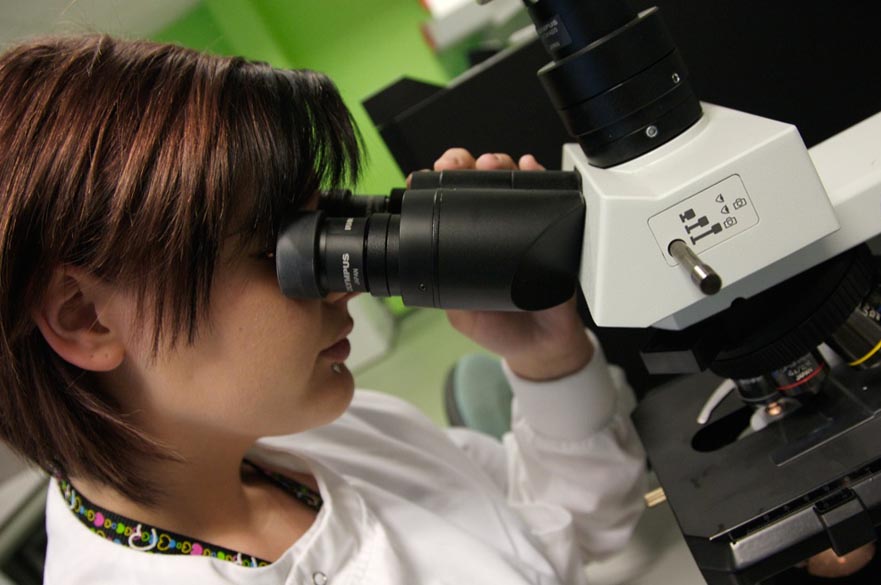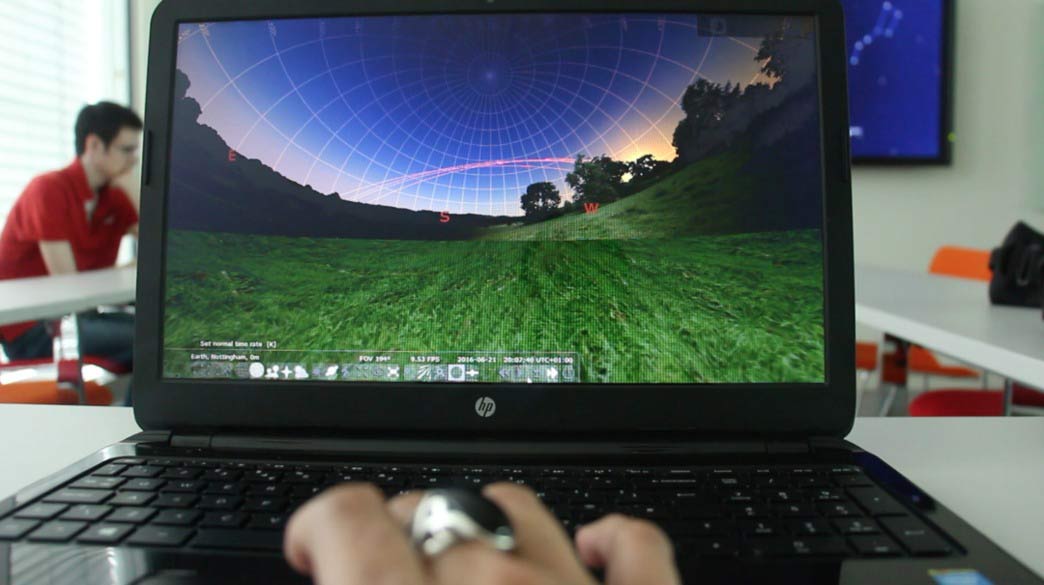Medical Imaging MRes
About this course
Working with imaging physicists and biomedical NHS collaborators and using industry-standard equipment such as MRI scanners, you will learn how medical imaging techniques play a role in diagnosing, treating, and monitoring disease. This course is ideal for those working in the industry and looking to upskill.
Focusing on modern medical imaging research, you will gain specialist knowledge through taught modules before carrying out an extended research project of your choice. This master's is a great way to enhance your career.
You will develop the ability to plan and execute a research project and effectively communicate your findings articulately and professionally. Work closely with a dedicated academic team who are all active researchers in their own right and who regularly publish in top physics journals.
The MRes Medical Imaging course provides a grounding in the science that underpins a range of both medical-relevant and non-medical imaging techniques. Please note that this course is not clinical or vocational and it does not provide work-based placements or advanced professional training in radiography.
What you’ll study
In terms one to three you will study your taught modules, in term four you will conduct your Masters' level project. This gives you 15 weeks to concentrate full-time on a specialist area of interest and apply what you have learnt to a specific problem.
About the Physics Team
Our expert staff are constantly updating the way in which they teach Physics. Most of our staff conduct cutting-edge research and bring these inspirational results into their teaching. This ensures that what you learn is exciting, relevant and up-to-date.
Professor Rob Morris is an expert in medical imaging with a focus on MRI and ultrasound. He is a dynamic lecturer and project supervisor and enjoys sharing his knowledge and enthusiasm for the topic with students at all levels.
Professor Haida Liang is an internationally recognised expert in advanced optical imaging and sensing for archaeology, art history and conservation, a field in which she applies her background training in astrophysics.
Dr Martin Bencsik, who teaches and researches into MRI, studied for his PhD with the Nobel-prize winning Physicist Sir Peter Mansfield, co-inventor of MRI.
Dr Fouzia Ouali is an experimental physicist with extensive experience in fluid dynamics. She worked for Bookham Technology (now OCLARO) and combines a blend of experience from both industry and academia within her research.
Visit our academic team pages to find out more about our approach to teaching, our partners and research interests.
Core modules
Medical Imaging (20 cp)
Topics include:
- Nuclear Magnetic Resonance (MRI) imaging and applications in medical diagnostics
- diagnostic sonography (US, ultrasonography)
- computed tomography (CT) and X-ray medical imaging.
Professional Physicist (20 cp)
Topics include:
- This module provides an underpinning in research skills relevant to the independent study required for an MRes.
- Topics include scientific writing and referencing, use of library and learning resources, presentation of results and statistical analysis.
- The module also considers the ethical issues in relation to research in the chosen field.
Research project (120 cp)
You will undertake an extended project (experimental or theoretical) full-time from February onwards in an area related to your chosen imaging specialism. The project will be chosen from those offered by research teams.
Optional modules
Choose one:
Imaging Matter: From Atoms to Galaxies (20 cp)
This module explores the tools and techniques used in materials imaging. Both laboratory classes and case studies will reinforce your knowledge. The main topics include:
- digital imaging and image processing and image capture (CCD, thermal, video, digital cameras), image enhancement and compression
- the operating principles, applications and limitations of advanced optical microscopy, including polarising light microscopy, fluorescence microscopy and confocal and near-field microscopy.
Science Communication (20 cp)
Covering science communication in the digital age, you will focus on communication for research, to both a specialist and non-specialist audience. You will look at a topical and / or controversial issue within science showing appreciation of the ethical, social and legal issues.
Business and Enterprise (20 cp)
In this module, you will develop techniques for generating and developing ideas creatively and understand the links with new business concepts and their development. You will also develop self-management and collaborative learning skills.
We regularly review and update our course content based on student and employer feedback, ensuring that all of our courses remain current and relevant. This may result in changes to module content or module availability in future years.
Don’t just take our word for it, hear from our students themselves
Hands-on physics
How you're taught
You will learn through:
- lectures
- seminars
- research
- case studies
- experimental based work
- image analysis
Please note that this course is not clinical or vocational and does not provide professional training in radiography.
Learn a new language
Alongside your study, you also have the opportunity to learn a new language. The University Language Programme (ULP) is available to all students and gives you the option of learning a new language or improving the skills you already have. Find out more about the ULP.
How you're assessed
Coursework (78%), written (13%) and practical (9%)
Contact hours
Lectures / seminars / workshops (15%) and independent study (85%)
Careers and employability
This Medical Imaging Masters course provides a solid base for a career as a scientist or engineer in various industries reliant upon imaging. This includes:
- healthcare
- medical instrumentation
- medical-related software industries
This course also provides a basis for further study towards PhD research or training as a clinical / hospital scientist.
Re:search Re:imagined
Research is about more than writing papers and proposing new ideas. By daring to think differently, we’re disrupting the research landscape and finding the answers to the questions that matter. From conservation management to sustainable farming, we’re inspiring the brightest minds to rise up and find solutions to some of the most significant global challenges facing society.
NTU Enterprise
You'll also have the opportunity to turn your ideas into a viable business with help from NTU Enterprise, NTU's purpose-built Centre for Entrepreneurship and Enterprise, a support centre to help students create, develop and grow their businesses.
Campus and facilities
You’ll mainly be studying in the Erasmus Darwin Building with access to facilities including an on-campus observatory, sound booths, CT scanners and dark rooms:
- custom-built teaching observatory recognised by the International Astronomical Union with a 20-inch and a 14-inch telescope and a 2.3m radio telescope
- MRI facilities, including a 2.35 Tesla Bruker Biospec scanner, a Halbach MRI and a unilateral MRI scanner
- a microscopy and imaging suite including electron microscopes, confocal and polarising microscopes, an atomic force microscope and a scanning tunnelling microscope
- a state-of-the-art micro-fabrication laboratory for creating micro-mechanical and microfluidic devices
- an excellent Ionising Radiation teaching laboratory and three X-ray CT scanners.
Our facilities and expertise ensure you get the practical experience employers and researchers need. Recently, we’ve spent £250,000 on new equipment for our teaching laboratories, including telescopes, CCD cameras, ultrasound scanners, magnetic resonance spectrometers, high-speed cameras, thermal imaging equipment and a high-resolution 3D printer.
Our self-contained, community-focused Clifton Campus has been designed to keep students busy between lectures. Catch-up with your course mates in the Pavilion’s barista café and Refectory; brainstorm group presentations in chic and stylish study spaces; enjoy some proper R&R in The Point, home of our Students’ Union. The campus also hosts the multimillion-pound Clifton Sports Hub, offering great options for everyone — whatever your interests, and however competitive you’d like to get!
You’re also right next to the bright lights of Nottingham — one of Britain’s top 10 student cities, and one of Europe’s top 25. All through termtime, a dedicated on-campus bus service will get you to the heart of the action (and back) in under 25 minutes. You’ll find a city stuffed with history, culture, and well-kept secrets to discover at your leisure: enjoy lush green spaces, galleries, hidden cinemas and vintage shopping by day, and an acclaimed food, drink and social scene by night.
Get involved
Our student-run Astronomy and Physics Society organises social events and trips – all themed around hot Physics topics. Recently students have been searching for the Northern Lights in Iceland, visiting the large hadron collider in CERN, and calculating the complex forces involved in roller coaster rides at Alton Towers.
Entry requirements
UK students
Academic entry requirements: 2.2 honours degree or equivalent from a range of physics-based degrees, engineering or related disciplines.
Applicants with relevant employment experience or qualifications will also be considered.
Please note that this course is not clinical or vocational and does not provide professional training in radiography.
Additional requirements for UK students
There are no additional requirements for this course.
Other qualifications and experience
We welcome applications from students with non-standard qualifications and learning backgrounds and work experience. We consider credit transfer, vocational and professional qualifications, and any work or life experience you may have.
You can view our Recognition of Prior Learning and Credit Transfer Policy which outlines the process and options available, such as recognising experiential learning and credit transfer.
Getting in touch
If you need more help or information, get in touch through our enquiry form.
International students
Academic entry requirements: 2.2 honours degree or equivalent from a range of physics-based degrees, engineering or related disciplines.
Applicants with relevant employment experience or qualifications will also be considered.
Please note that this course is not clinical or vocational and does not provide professional training in radiography.
We accept equivalent qualifications from all over the world. Please check your international entry requirements by country.
English language requirements: See our English language requirements page for requirements for your subject and information on alternative tests and Pre-sessional English.
Additional requirements for international students
Student visas
Following an update to the immigration rules in January 2024, if you intend to study in the UK on a Student visa, you can only bring your partner / children (‘dependants’) if you are studying one of the following:
- a PhD or other doctorate (RQF8)
- a research-based higher degree.
Please note that all of our MRes courses are classed as ‘postgraduate taught’ and therefore do not meet the requirement for you to be accompanied to the UK by your dependants.
English language requirements
View our English language requirements for all courses, including alternative English language tests and country qualifications accepted by the University.
If you need help achieving the language requirements, we offer a Pre-Sessional English for Academic Purposes course on our City campus which is an intensive preparation course for academic study at NTU.
Other qualifications and experience
We welcome applications from students with non-standard qualifications and learning backgrounds and work experience. We consider credit transfer, vocational and professional qualifications, and any work or life experience you may have.
You can view our Recognition of Prior Learning and Credit Transfer Policy which outlines the process and options available, such as recognising experiential learning and credit transfer.
Sign up for emails
Sign up to receive regular emails from the International Office. You'll hear about our news, scholarships and any upcoming events in your country with our expert regional teams.
Getting in touch
If you need advice about studying at NTU as an international student or how to apply, our international webpages are a great place to start. If you have any questions about your study options, your international qualifications, experience, grades or other results, please get in touch through our enquiry form. Our international teams are highly experienced in answering queries from students all over the world.
Policies
We strive to make our admissions procedures as fair and clear as possible. To find out more about how we make offers, visit our admissions policies page.









